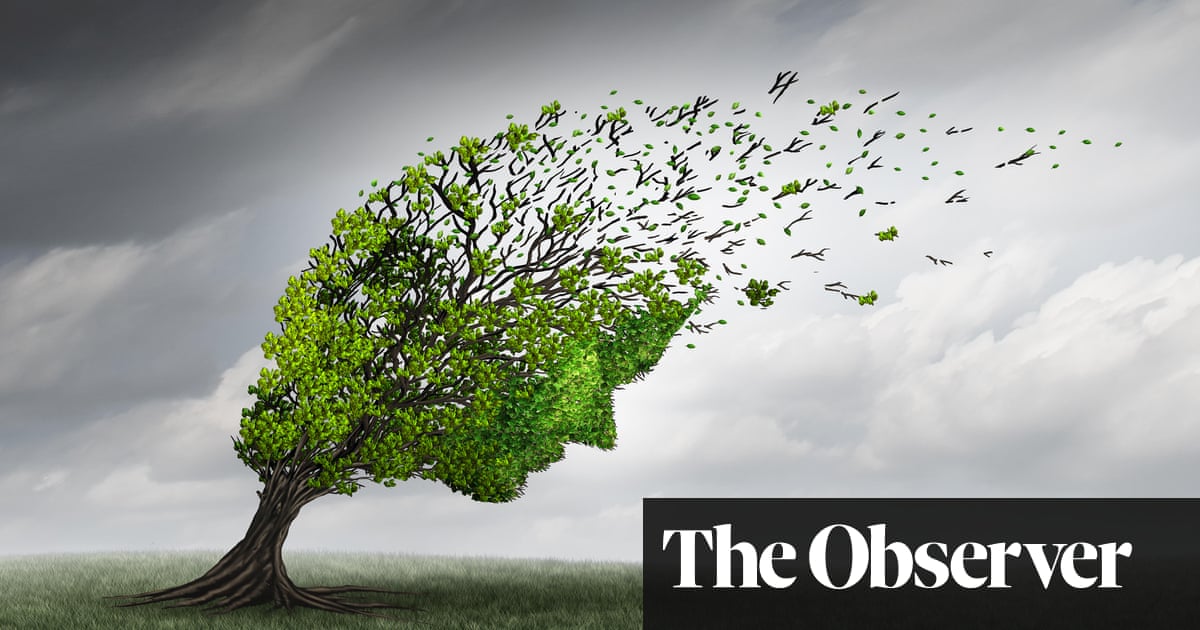Review of Vincent Deary’s “How We Break: Navigating the Physical and Emotional Strains of Daily Life” – exploring the factors that contribute to our downfall.

V
Incent Deary is an expert in fatigue, both clinically and academically, and focuses on how our mental and physical well-being can be affected by life. This book serves as a sequel to his previous work, “How We Are,” which was published in 2015. The timing of this book is relevant, given the past nine years of economic struggles, a global pandemic, and overall uncertainty. During this time, issues such as sleeplessness and anxiety have seen a significant increase. While Deary’s previous book explored ways to thrive, this one delves into the various ways we struggle to do so. One of his colleagues describes our current psychological state as constantly being on the run from danger.
Deary’s analysis has a rawness that adds a human touch to his theories. This is partly due to his own personal breakdown in recent years. He also shares case studies of individuals he has encountered in his work, who have been overwhelmed by the “allostatic load” of stress – the final straw that breaks the camel’s back. These case studies are a combination of different patients, trying to balance jobs, debts, caregiving responsibilities, trauma, and regret. Two significant stories that he revisits are those of his mother, Isobelle, who was full of life but succumbed to severe depression in her final years, and his former partner, referred to as Sami, an NHS nurse who has overcome childhood sexual abuse but struggles with the unpredictable work schedule and unfair bureaucracy of his job. (Sami, who had been up all night watching a suicidal patient, breaks down when reprimanded for drinking coffee in a staff room that he is not allowed to use.)
The book argues that we are all born with inherent vulnerabilities, varying in degree, that can be triggered by different circumstances, whether it be three or 23 steps away from reaching our breaking point. The author’s mother, a dynamic and impulsive individual, became a mother at the young age of 19 in working-class Scotland to escape the limitations of her own upbringing, but still found herself in a difficult situation. She often described this struggle with a twist on a common saying: “What doesn’t kill you makes you fed up.”
In order to avoid feeling bitter and hopeless, Deary includes a series of health checks throughout his book. These checks examine how secure one feels in their work, home life, and personal well-being. Through this, Deary presents a compelling argument against the modern pressures that threaten our sense of security. These include the pressure to constantly perform well in the workplace, the shift towards emphasizing resilience in welfare policies, the negative impact of social media on our perspective, and the loss of the ability to fully recover through rest.
Deary is a diverse reader whose studies involve referencing a range of sources, including works by Terry Pratchett and George Eliot, as well as the Diagnostic and Statistical Manual of Mental Disorders. He acknowledges that the integration of experiences and exposures into our physical, emotional, and mental selves is a field that is still being explored, but this concept has long been explored by the greatest writers for many years. Reading this book reminded me of F Scott Fitzgerald’s influential essays on his own personal struggles, particularly because some of Deary’s metaphors are similar in style. Fitzgerald was familiar with the concept of allostatic loads, stating that “In a true dark night of the soul, it is always three o’clock in the morning, day after day.”
Deary and Fitzgerald both explore the concept of our minds as storytellers, which can malfunction during times of vulnerability, causing us to develop delusions, addictions, compulsions, and paranoia. The latter half of Deary’s book focuses on strategies to protect ourselves from these harmful internal narratives. One such strategy, known as “acceptance and commitment therapy”, is part of the third wave of Cognitive Behavioural Therapy. This approach acknowledges that our minds are more likely to identify problems than solve them, and encourages us to not always trust our thoughts. While the self-help advice is cautiously presented and difficult to achieve, there are still some motivational takeaways, such as “The key to wellbeing is not to change the story, but to be the stage… hold your personal narratives lightly and allow yourself to be lightly influenced by them.” Wishing you a happy new year.
Source: theguardian.com




